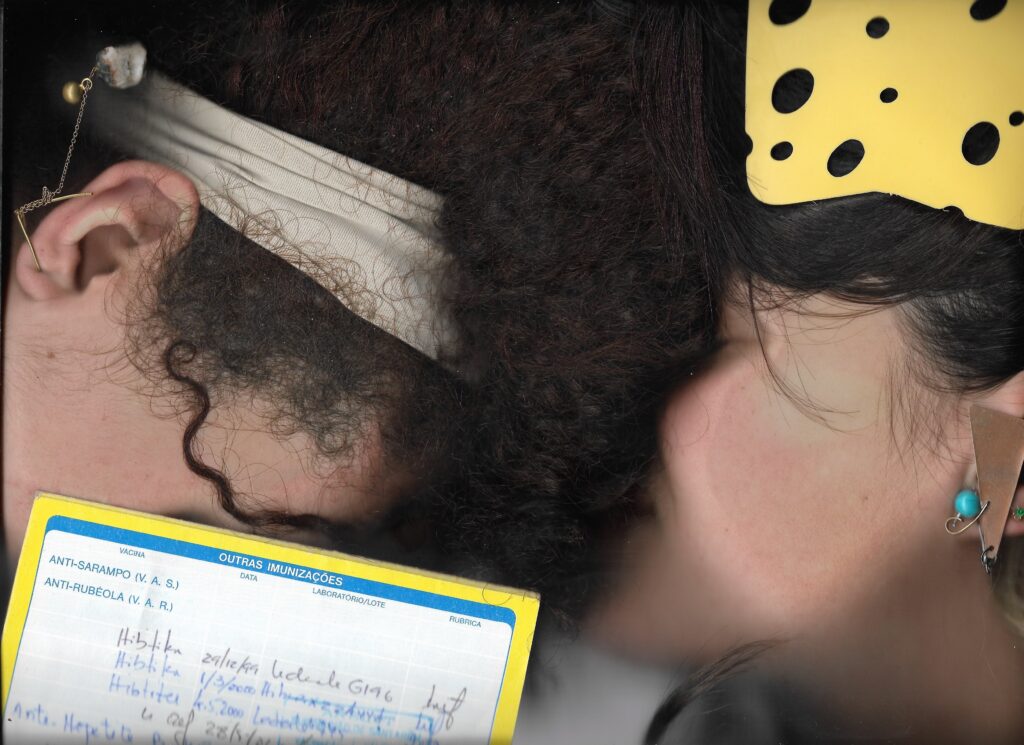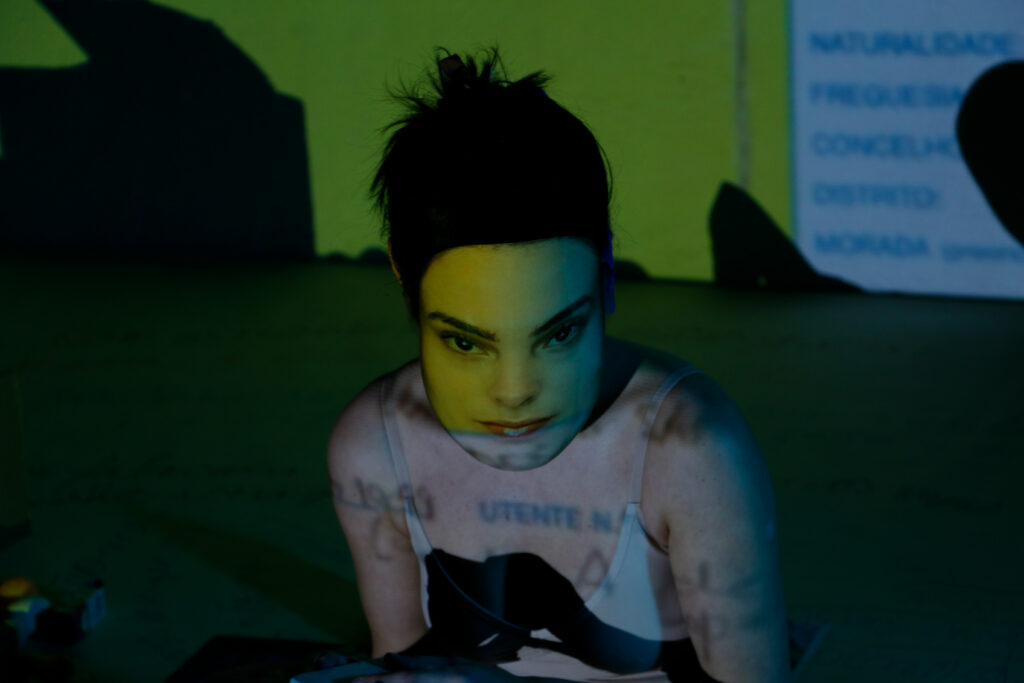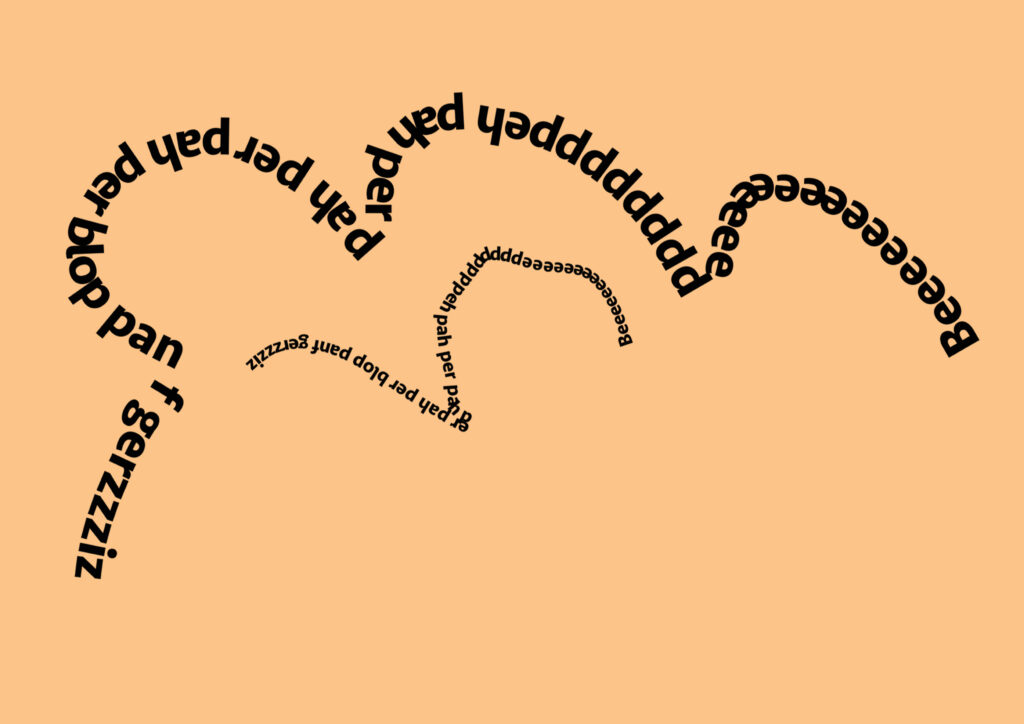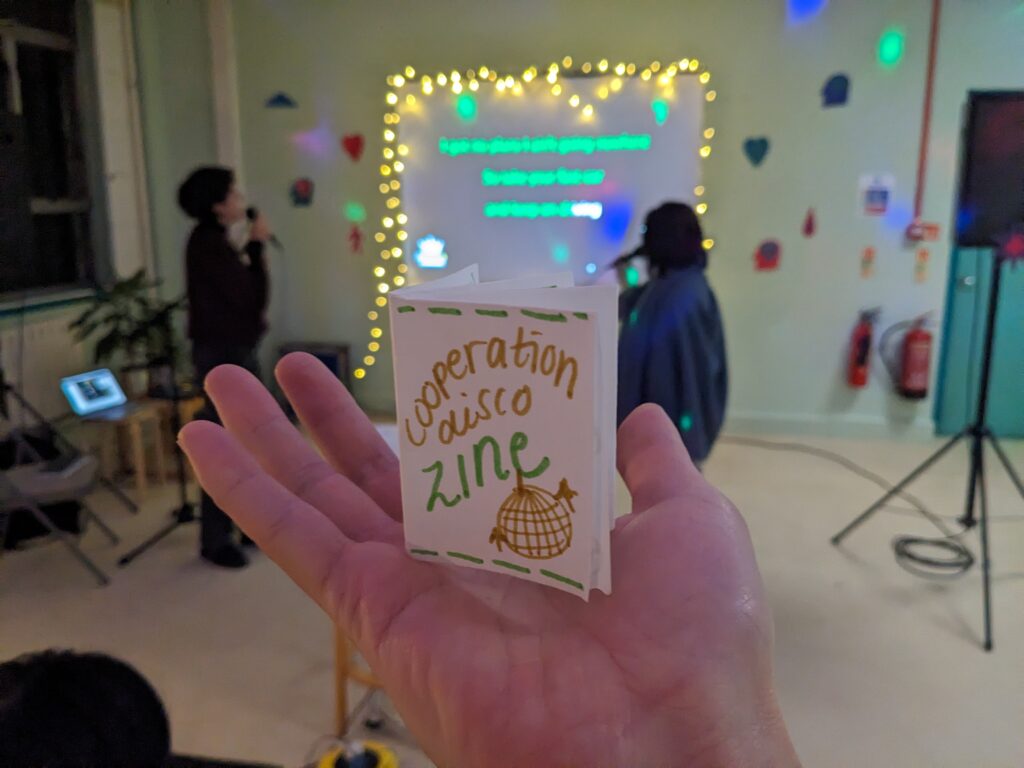Spells for a border town (retrocedare) | Diana Damian Martin
Written in English, audio in Romanian below.
In Romanian, retrocedare refers to the process of returning something, for example a territory, back to the person or entity that had previously been ceded (usually) during a violent or enforced take-over.
This April edition of performing borders explores the entanglement between this re-ceding process and decolonial practices on the peripheries of Europe, paying attention not only to the territorial but to the temporal.
The newsletter gathers a number of spells for a “border town” – speculative dialogues with artists on what it means to dwell within multiple temporalities, and what strategies for repair and visioning might be made from the position of periphery not as an edge or limit, but as an active borderlessness.
The ‘periphery’ of Europe is of course, a political fiction, as much as it is a speculative border act; similarly, ‘East’ continues to perform a political liminality, despite its multiple proximities; it continues to be shaped by axes of power that articulate geopolitical imaginaries and govern racial capitalism. Throughout the pandemic however, many of us have articulated multiple politics of refusal – refusal of the state; refusal of integration; refusal to accept ‘postnationalism’ when deployed as yet another form of racial and border oppression; refusal to look away from coloniality, modernity and their violence; and refusal to isolate conversations on borders – geographic or bodied- as mere enactments of biosecurity or political privilege.
Spells for a border town bring together interviews with two artists and their networks, who enact collective, cross-border processes – be they through articulating new political imaginaries through Roma Futurism, or working coalitionally across the Dnister River in Transnistria, which continues to only be recognised geopolitically as part of the Republic of Moldova. Spells frame these interviews – spells against fascists, by technowitches, for coalitional grassroots work and cross-border creative visions.
This newsletter thinks with technologies of refusal and remaking; the spell is to me, not only a connective tissue to my own ethnic entanglements and sense of place(lessness); it is also an incantation towards multiple times. Recently, I’ve become obsessed with a digital archive of border marks from across Eastern Europe– sculptural signs, most of them part of a network of internal territorial marking during the socialist era; a kind of performative bureaucracy. These are abstract shapes, patterns that mark the edges of unfinished roads, entrances to towns that have long changed or shifted. In this region however, ecologies both human and non-human are more powerful. I often think of rivers that continue to cross the terrains outside of continental fictions, and deltas that create nondescript relations; of what we might learn from thinking in confluences; and of the kinds of attention we might find in ancient modes of being in common, against all odds, across embodied and geographic territories.
A spell for memories yet to come.
A spell against ‘optimism’ (in reference to the affect in languages of governance in UK recently), against protecting violent sovereignties, against hostile environments which is to say
a spell for criticality, visioning and communities of care defiant of the intervening state fictions.
Spell 1: Tehno-vrăjitoarea| Texno-drabarni | The TechnoWitch by Mihaela Drăgan
Audio in Romani and Romanian, transcript in English.
Spell 2: Spell for the future- interview with Mihaela Drăgan
Interview (audio) in Romanian, transcript in English.
Spell 3: Spell against fascists by Mihaela Drăgan
Audio in English, transcript in Romanian, Romani and English.
Spell 4: Spell against the state- extract from ‘The State has no time for Coronavirus’ by Natalia Graur
Text in Romanian, translated to English.
Spell 5: Spell across the Nistru- interview with Rusanda Curcă
Interview in Romanian, translated to English.
Spell 6: Spell for independence- extract from Manifesto for an independent cultural sector in Moldova
Text in Romanian, translated to English.
Spell 7: Roma Futurism, soundscape by Flo Thamer
If you are reading transcripts, you can listen to Roma Futurism by Flo Thamer as you move through language.
Spell 8: Spell for cross-border ecologies – a herbal journey across performing borders archive
Text in English.
Spell against endings: to the Euxine Sea (petals of Dianthus Callizonus or Garofița)
Petals for rivers spilling into the Black Sea: Prut, Dnister, Danube, Dnieper, Don, Kizilirmak, Kuban, Sakaraya.
Petals for the Euxine Sea (Black Sea) with its strongly saline water; green basil walking along its coast, histories already etched. Take note of the colour of the water, it is ours to hold.
Petals to the Vidin-Calafat New Europe bridge, to etch something new into the water.
Petals along the routes of Samudaripen, marking pathways, visioning new ones out of the wilding.
Petals by the Danube Delta, to let your feet melt into the sand.
Petals in 1025, in 3025, scenting between localities that have shifted terrain, or to mark the water scarcity, or the communal areas of gathering.
Special thanks to Iulia Mărăcine for the support with translation on this commission.
This commission is a part of the performingborders 2021 programme.
Mihaela Drăgan is a multidisciplinary artist with an education in theatre who lives in Bucharest and works in several other countries. In 2014, she founds Giuvlipen Theatre Company, for which she is an actress and playwright, together with other Roma actresses. She also works in Berlin as an actress for Maxim Gorki Theatre, Heimathafen Neukölln, Theater Aufbau Kreuzberg. She is also a trainer at Theatre of the Oppressed, working with Roma women in Romania and has also worked with refugee girls in Germany.
She was one of the six finalists for The 2017 Gilder/Coigney International Theatre Award from New York, an award which acknowledges the exceptional work of 20 theatre women around the world. In 2020 she is nominated again and she is the recipient of the Special Award of the League. In 2018, Drăgan was a resident artist in Hong Kong at Para Site Contemporary Art Centre where she was developing Roma Futurism – that lies at the intersection of Roma culture with technology and witchcraft. Her performance “Roma Futurism” has been showcased in art spaces as the Museum of Contemporary Art from Belgrade; at FutuRoma – collateral exhibition at Venice Biennale; at Critical Romani Studies conference at Central European University in Budapest and Romanian Cultural Institute in London. In the same year is acknowledged by PEN World Voices International Play Festival 2018 in New York as one of the ten most respected dramatists of the world.In 2019 is one of the playwrights selected for the acclaimed Royal Court Theatre International Summer Residency in London where she wrote a science fictional play about a future utopian society of Roma witches who control technology and fight neo-fascist politics in Europe. In 2021 she exhibits her first video installation ”Future is a safe place hidden in my braids” divided into 3 short films that depicts futuristic rituals for healing transgenerational trauma of Roma people and are projecting a safe future for the community. Mihaela-dragan.com
Rusanda Curcă is a cultural worker, eco and civic activist living in Hîrtop village. She is the co-directrice of the Center for Cultural Projects Arta Azi, with a focus on developing the theatre sector within the country. Also, Rusanda was recently elected the co-directrice of the Coalition of the independent cultural sector from Republic of Moldova, an umbrella organization that unites the representatives of the independent cultural scene in order to consolidate it and which aims to improve the legislation in the field of culture through advocacy activities.
Iulia Mărăcine is a performance artist and co-founder of the multidisciplinary collective, Ludic. Within the collective, she co-created, organised and performed in participative performances, audiovisual installations, somatic workshops, in spaces such as Batterstea Arts Center (Londra), 13Festivalen (Gothenburg), ARTHUB (București), KyivDanceResidency (Kiev), CLOUD@Danslab (Den Haag), Centrul National al Dansului din București, Seoul Dance Center (Korea), SKOGEN (Swe). In her research, Iulia explores various possibilities to alter and rethink of the self and its relation with the environment. She puts a strong emphasis on corporality, processuality and non-hierarhic collaboration between artists. At the present, she is undergoing an MA at CESI (The Centre of Excellence in the Study of Image), where she researches the possibilities of translating notions from animal and plant studies into the pre-linguistic realm of choreographic practices. www.ludiccollective.com
Diana Damian Martin is an artist and researcher, working at the intersection between writing, politics and performance. Her work concerns alternative critical epistemologies and feminist modes of exchange, interventionist and political performance and the ecological and representational poetics of migration, with a distinct focus on Eastern Europe.Recent collaborations include performing borders, The Albany, Dansehallerne, The Wellcome Collection and Tate Modern. She co-hosts The Department of Feminist Conversations and Something Other, and co-runs the Serbo-Romanian critical cooperative Critical Interruptions, artistic research committee Generative Constraints and is a core member of Migrants in Culture. Her recent publications include (states of)wake: Dedicating Performance and Critical Interruptions Vol 1: Steakhouse LIVE. She is currently Senior Lecturer in Performance Arts at the Royal Central School of Speech and Drama, and once appeared in an issue of Private Eye, where her work was described as obscure, impenetrable and unclear.Twitter: @DianaADamian
Featured image credits: Diana Damian Martin



